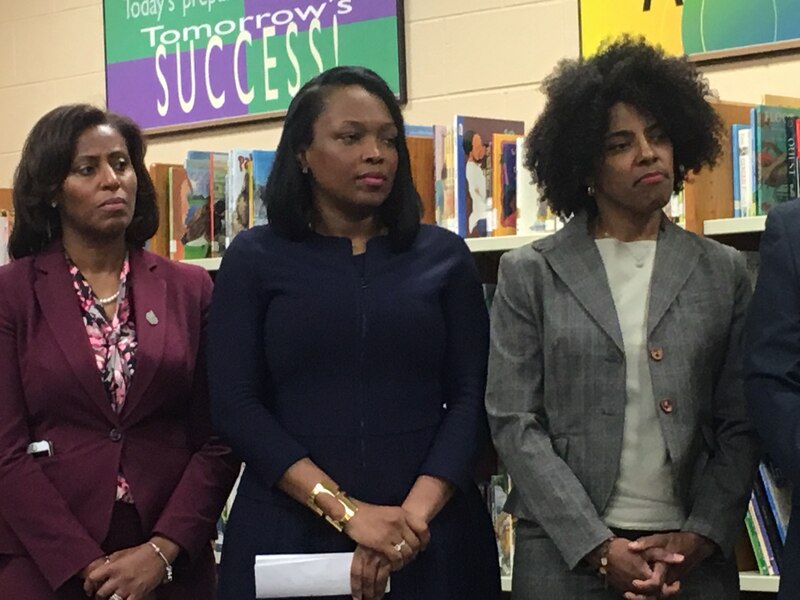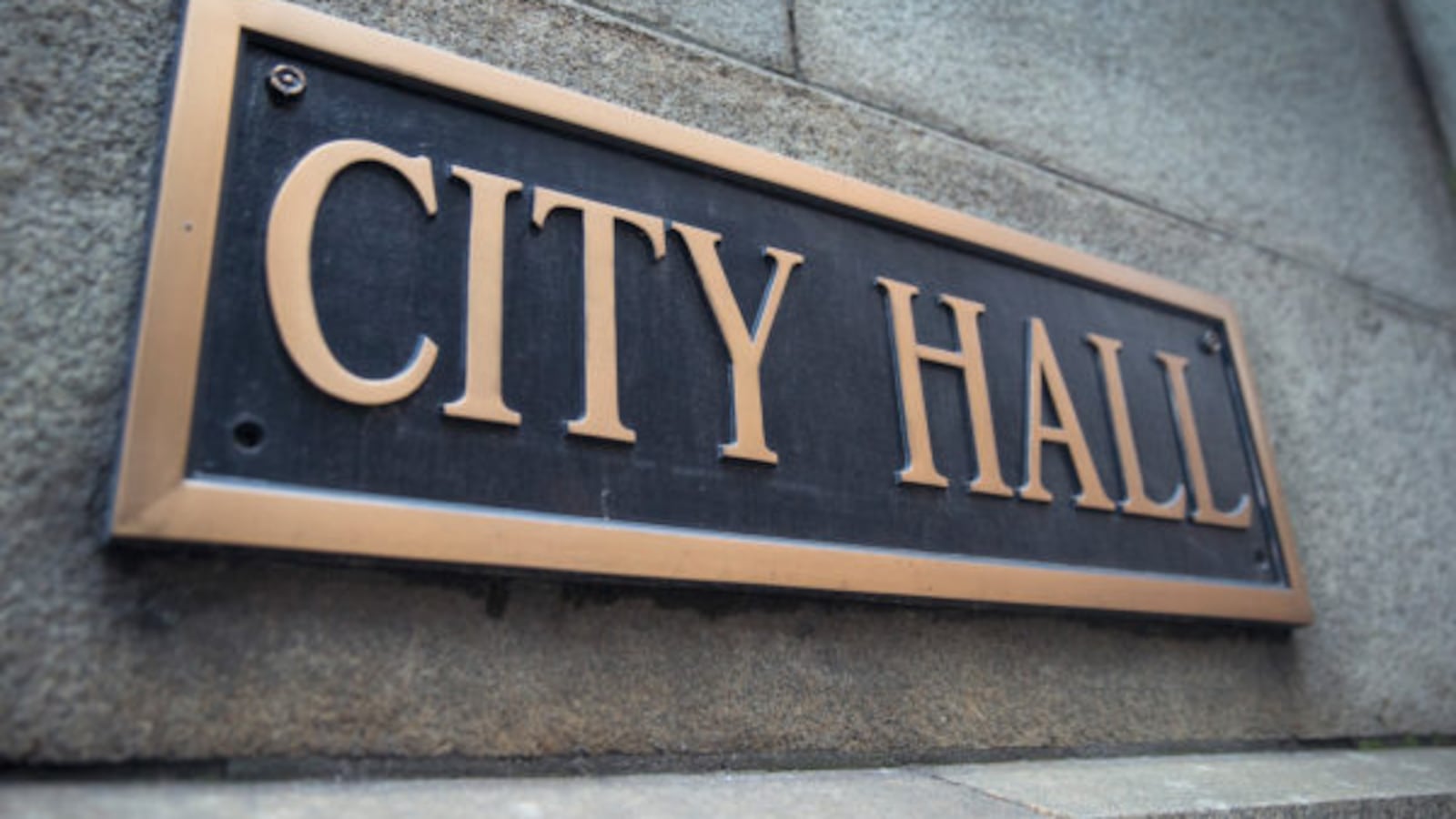When Mayor Lori Lightfoot unveiled a new school board she also named Sybil Madison deputy mayor for education and human services. But while Chicagoans have seen the board in action at lively monthly meetings, most of Madison’s role so far has played out behind the scenes.
Since her first official day at work in early July, Madison said she’s been busy getting to know the leaders, assets and challenges at the eight departments under her purview, especially Chicago Public Schools.
“My role isn’t to run the schools; that’s taken care of, because you know [schools CEO] Janice Jackson has that down, and her team is doing a great job,” Madison said. “My role is to forward the mayor’s vision, to work closely with that team to achieve that vision, and to understand where the mayor’s office, me and my team can add value to that work.”
Related: Here are 8 items getting more funding in Chicago schools budget
Madison, who co-chaired Lightfoot’s education transition team, will oversee education and youth-related policies as deputy mayor of education and human services. While Lightfoot’s predecessor, Rahm Emanuel, at times had a chief of staff who led City Hall’s education agenda, the new deputy mayor position elevates the role to the second-highest level in city government. Madison, a clinical and community psychologist by training, brings to the post 20 years experience in the education world as a school improvement coach, researcher and leader.
Madison is the former director of the Chicago City of Learning, a coalition of youth-serving organizations focused on connecting students to out-of-school learning opportunities, particularly in the sciences. She’s also a former research associate with Northwestern University’s Office of Community Education Partnership, and former director of education and leadership for Chicago Quest Schools, one of the charter operators under the umbrella of Chicago International Charter School.
Chalkbeat caught up with Madison for a phone interview to ask her about what she’s been up to and how she’ll work with schools from the mayor’s office.

What is your job?
I’m the deputy mayor for education and human services, and there are about eight departments and agencies that I connect with, including Chicago Public Schools and City Colleges of Chicago, but also family support services, the department of public health, parks, library, Mayor’s Office for People with Disabilities and the Cook County Workforce Partnership.
What is your mandate from the mayor as your work pertains to CPS, and how will you work with the school district?
My mandate is to work very closely with the school district and city colleges to achieve her goals for education. She has a focus on strengthening our neighborhood schools. She wants to ensure that every young person in Chicago, particularly every young person in CPS, has a pathway beyond high school to a viable and sustainable future, whether that’s through college or that through a career path. She wants to make sure that our youngest children are in supportive and nurturing environments where they can learn and grow.
My role is to work very closely with CPS leadership, and leadership at city colleges and across all of those departments to make sure that we’re creating an ecosystem that is gonna support young people learning and growing. The opportunity here with this office is to think about how all of those departments play a role in the health and well-being of children and youth.
Does Chicago Public Schools CEO Janice Jackson report to you?
Janice is accountable to the board of education, and she certainly does not report directly to me. We work together collaboratively and we’re all working toward the mayor’s vision.
How does the mayor envision your office working with CPS?
My role sometimes might be to remove barriers to help problem-solve. There are some ways in which the mayor will push us all to be bolder and to do more for the students in the city. For example, when she made the announcement about increasing the number of youth who have workforce-based learning experiences in a career tech program. So there’ll be times when the mayor is kind of charging us to figure out how to get someplace maybe faster than we were going to get there. And we’ll work together to do that.
What issues at the school district are your biggest priorities this coming school year?
We’re thinking about things like, “what does it take to strengthen neighborhood schools?”
I’m really excited that Dr. Jackson is planning to engage the community this school year around understanding what equity looks like at a local funding level.
I’m bringing with me an interest in out-of-school-time learning, and understanding how we can complement what happens during the school day by better organizing, coordinating, connecting opportunities that happen outside of the school day.
But I’ll have more to say about priorities when I’ve been here a little longer.
What is the added value of having someone like you helping to address an issue like declining enrollment that has a lot to do with Chicago neighborhoods, community development and broader?
That’s why this office was structured around education and human services, to think about the intersecting systems that impact young people and families and individuals in Chicago. We also have a deputy mayor of public safety, and a deputy mayor for business and economic and neighborhood development, because these issues are bigger than simply education.
It’s going to take all of us developing strategies across our offices and across the departments to really tackle those kinds of issues, to move toward a city where everyone feels safe, to support the prosperity of our young adults and create situations that make folks want to stay in the city. That’s not just about education. A big part of what our work is will be collaborating across departments so that we can actually strengthen the city by strengthening neighborhoods.

